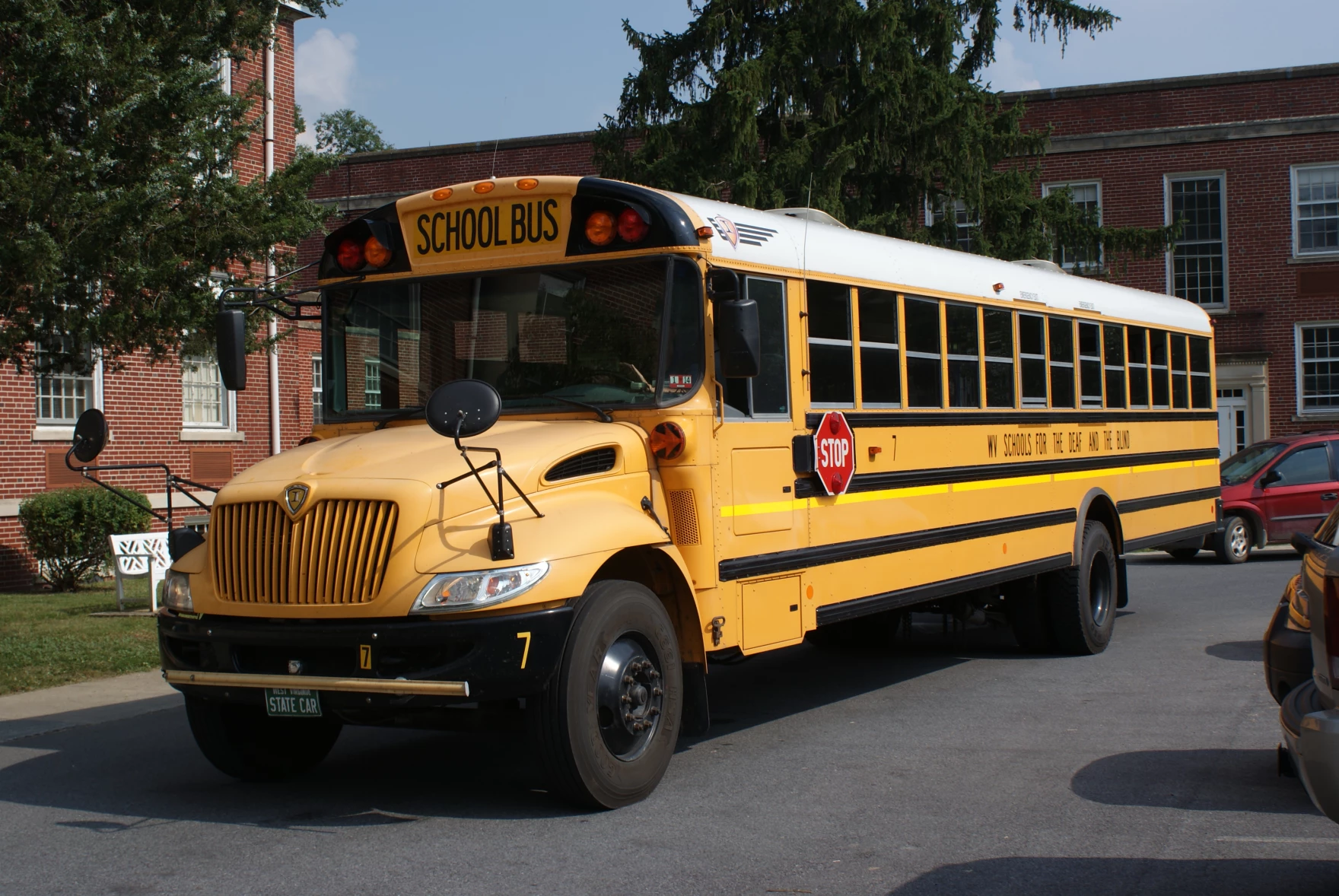A continuing West Virginia school bus driver shortage has bus routes being canceled daily and parents scrambling to get their children to school.
Eric Keesecker is the executive director of the Berkeley County Schools transportation department. The county has 240 bus routes that need to be covered twice a day, every school day. Keesecker said he’s canceling at least three routes daily, each route averaging 50-55 students. He said it’s the worst he’s seen in his 17 years on the job.
“We have 15 vacancies that we start off with every day,” Keesecker said. “We have a few substitutes and most of those are retired bus drivers that only want to work a couple of days a week, so basically we have zero substitutes.”
Before the school year started, Raleigh County Schools Transportation Director Greg Betkijian developed a series of problems. He said he had unusually low numbers in summer bus driver classes, several drivers that left for other opportunities and the usual retired bus drivers that filled in the gaps weren’t coming forward this year.
“We had urgent illnesses and other medical issues as well,” Betkijian said. “It was like a perfect storm. We have about 120 bus routes each day. We don’t have a full list of full-time drivers, and we don’t have a full list of subs either. There’s about five or six runs every day that we’re not going to be able to cover, and that’s if everybody works every day.”
Keesecker said Berkeley County parents on canceled bus routes have stepped up.
“A lot of parents have developed a carpooling system to get the kids to school,” he said. “However, if there isn’t a ride for that child, then the child stays home, and they get their work for the day off of our website.”
Betkijian said other Raleigh County bus drivers try to pick up second routes, but that creates confusion.
“Especially for the younger grades,” Betkijian said. “A lot of the elementary kids, they know they ride a certain bus number. If another bus picks them up, it creates some confusion for the child which, in turn, creates confusion for the parents.”
David Baber is transportation director for the West Virginia Department of Education. He said statewide, there’s about 4,000 buses and 2,900 drivers. Baber said he did like what he heard about the Berkeley County parent carpools.
“At least we’re getting the students to school that way,” Baber said. “I don’t know what we could do at the state level to do anything about that.”
All agree what would help recruit and retain is a pay raise. West Virginia school bus drivers with a CDL license make about $25,000 a year. Keesecker said they can make triple that in the private sector.
“There are so many manufacturers and companies that have come into this area, not just Berkeley County, across the state line in Maryland and Virginia,” Keesecker said.”We’re all fighting for the same labor pool.”
The issue isn’t unique to border counties, and Barber said the state Department of Education continues to push the West Virginia Legislature for needed bus driver pay raises. But he said the challenge goes beyond that.
“We are losing or have lost people to other industries,” Barber said. “We don’t have people beating the door down to get in here anymore like we used to. It’s just a different time that we’re in. We’ve got to figure this out. ”
Baber said a critical shortage of school bus mechanics continues as well.
“They’re going to higher paid jobs,” Baber said. “Some counties want their mechanics to also drive school buses and some don’t want to do that. We have them leaving left and right as well.”
Betkijian did say in Raleigh County, some things are looking up.
“We do have two classes going on right now,” Betkijian said. “We will see five or six folks come out of those classes very soon and become bus drivers for us. I think there is light at the end of the tunnel. Our cancellations each week are trending downward. I don’t know what the answer is, but we’re going to keep recruiting and keep training and see if we can overcome this problem.”
